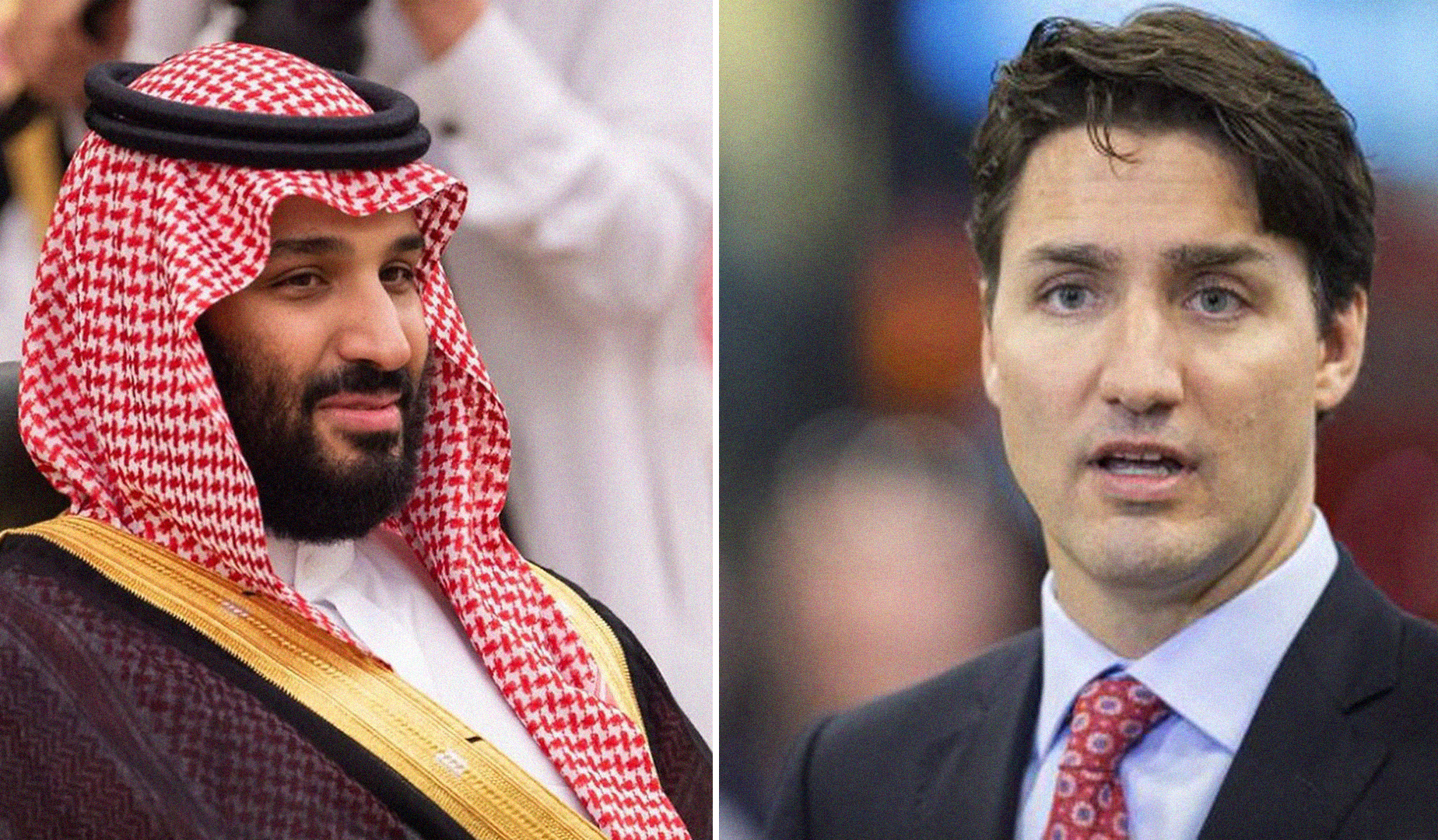Welcome to the Saudi Arabia vs. Canada Troll War

You can’t take anything for granted in this crazy, mixed up world of ours. One day you are just casually having a normal diplomatic relationship with a repressive Wahhabi monarchy, and then the next a verified Saudi infographics account is tweeting a meme implying they are going to fly a plane into the CN Tower.
2018, folks! You never know what you’re going to find when you wake up and read the news.
The source of this digital diplomatic incident is some tweets last week from Foreign Affairs Minister Chrystia Freeland and from Foreign Policy Canada:
The Kingdom of Saudi Arabia was unimpressed about this online ribbing from one of its Western arms dealers. They immediately put the Canadian government on blast for trying to “interfere” in the kingdom’s internal affairs. Canadian ambassador Dennis Horak was given 24 hours to leave the country and the Saudis are withdrawing their own ambassador to Riyadh for further consultation. A flood of online trolls freshly versed on the country’s Wikipedia page appeared to inform Canadians that “we Saudis are worried about your cultural genocide against Indigenous peoples, and we support Quebec independence.” (To be fair, we’re all concerned about Canada’s cultural genocide against Indigenous peoples, but it’s hard to take that criticism seriously from a country actively engaged in a less subtle form of suppressing internal minorities.) I’m a little disappointed they didn’t chew us out for canceling the Avro Arrow or allowing Newfoundland into Confederation, but maybe those critiques come in round two.
Meanwhile, the Saudi government has pledged to relocate thousands of its students in Canada to schools throughout the rest of the English-speaking world. It is also going to freeze any new investment or trade relations with Canada. It’s unclear what that means for Canada’s $15 billion arms deal with the Saudis and its accompanying 14-year maintenance/training agreement. (Unfortunately for the feds, however, the present impasse undercuts their assurances that selling weapons to the House of Saud will give us more leverage to call them out for human rights abuses.) There doesn’t seem to be any rush for the Saudis to divest from their partial ownership of the Canadian Wheat Board. Hopefully they were just bullshitting on their threat to also “interfere in Canadian affairs” as vengeance, or we might come to discover that dismantling the Canadian state and selling it off to foreign interests was maybe not a great idea!
The international reaction has been fairly muted. Several Arab states have voiced support for Saudi Arabia, but do not appear interested in starting flamewars about the 1995 Quebec referendum on Twitter. Some European politicians have tepidly indicated their support for Canada in this human rights spat, while the US State Department is officially not getting involved either way.
This may be the biggest takeaway from all this. Observers have noted that Saudi Arabia has been ramping up its national assertiveness for several years now, and the arms deal with Canada was just the beginning of a deeper partnership between the two states. The Saudis have also become increasingly regionally aggressive: they are blockading Qatar, at war with Yemen, threatening Iran, and last year held the prime minister of Lebanon hostage. Gently ribbing autocrats over human rights abuses while quietly arming them is a longstanding diplomatic practice in the West, but the House of Saud has decided that the game is different now. They do not care for sanctimonious lectures from a soft, middling power in a world where high-handed liberalism is quickly going out of style.
It’s not earth-shaking that the U.S. is staying out of this particular squabble—Canada-Saudi relations aren’t even that important to the two countries involved, let alone America—but it does raise questions about whether Canada can continue to fulfill its idealized role as North America’s liberal conscience if it can’t guarantee US moral support against one of the more comically villainous regimes in the Middle East. What happens if we have a principled disagreement with a more geopolitically significant power? What is Canada’s foreign policy in a world where America has walked away from its 70 years of doing all our heavy lifting?
Best not to think about large, complex problems like that. In the meantime, this is probably good news for Justin Trudeau. Dunking on a ruthlessly anti-feminist government whose official Twitter accounts post pictures of a Canadian 9/11 is the sort of easy charm offensive that he’s been missing all year.
Then again, Canada has also gone insane and the Sun is running op-eds about how Trudeau should have gone easier on Saudis because they’re doing their best. Who knows how anything will shake out domestically anymore? That’s the beauty of 2018: every day is a new and wonderful surprise. Hooray for everything.
Follow Drew Brown on Twitter.
Sign up for the VICE Canada Newsletter to get the best of VICE Canada delivered to your inbox.